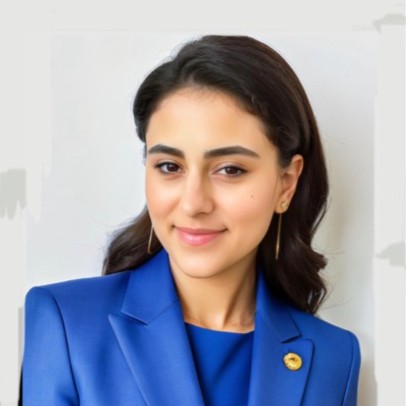 Stefano Menotti
Stefano Menotti
TAX TREATMENT OF MOTOR VEHICLES EXPENDITURES IN UAE
1 - INTRODUCTION
When a motor vehicle is available for the use of an employee, manager, or shareholder beyond working hours, it is considered as partially used...
05 Jan, 2024

 Ines Pinel Lorenzo
Ines Pinel Lorenzo
LA INDEPENDENCIA FINANCIERA DE LAS MUJERES CASADAS EN EMIRATOS ÁRABES UNIDOS: EL CONTRATO MATRIMONIAL Y LA LEY DE ESTATUS PERSONAL
En Emiratos árabes Unidos, el matrimonio musulmán esta regulado por la Ley Federal No. 28/2005 de Estatus Personal (en adelante Ley del Estatus Pe...
29 Dec, 2023

 Ines Pinel Lorenzo
Ines Pinel Lorenzo
FINANCIAL RIGHTS OF MARRIED WOMEN IN THE UAE: NAVIGATING THE MARRIAGE CONTRACT AND PERSONAL STATUS LAW
In the United Arab Emirates, Muslim marriage is governed by the Federal Law No. 28/2005 on Personal Status (hereinafter referred as Personal Status Law or PSL)....
29 Dec, 2023

 Elleonor Grace E. Apostol
Elleonor Grace E. Apostol
VAT and Employee Benefits
Overview
VAT is a transaction tax for businesses. Businesses pay VAT on purchases and charge it on sales, with a net balance payable or refundable.
Cha...
25 Dec, 2023

 Daisy Cureg
Daisy Cureg
VAT for Holding Companies and Corporate Groups
Overview
Corporate groups, regardless of their size, encompass diverse entities each serving a distinct purpose within the group structure. Typically, there is...
25 Dec, 2023

 Ahmed Gabr
Ahmed Gabr
Tax Disputes and Litigation
Overview
With the application of excise tax and VAT in the UAE and Federal Decree-Law No. 47/2022 On the Taxation of Corporations and Businesses and since Oc...
22 Dec, 2023

 Ahmed Elnaggar
Ahmed Elnaggar
You’ve got to Know Your Clients
Let's remind everyone of the crucial concept of 'Know Your Client' (KYC) procedures in business transactions. This practice is not just a formality; i...
22 Dec, 2023

 Elleonor Grace E. Apostol
Elleonor Grace E. Apostol
Tourist Taxes in the UAE: What Travelers Need to Know
Overview
In the UAE, tourist tax regimes are different across the country. Not all of the Emirates apply such a tax.
With the introduction of these taxes, h...
16 Dec, 2023

 Ines Pinel Lorenzo
Ines Pinel Lorenzo
Legalización de documentos en los Emiratos Árabes Unidos para España
La digitalización no ha simplificado únicamente la forma de obtener información, sino que también ha permitido que los procesos buro...
01 Dec, 2023


 Ines Pinel Lorenzo
Ines Pinel Lorenzo
Document Legalization Processes in the UAE for Spain
In today's increasingly digital world, the need for efficient and streamlined legal processes has become paramount. Recognizing this need, the United Arab Emira...
01 Dec, 2023


 Elleonor Grace E. Apostol
Elleonor Grace E. Apostol
VAT and Commercial Services
Overview
The UAE's introduction of a 5% VAT in 2018 marked a pivotal moment in its economic history. It signaled a shift away from oil-dependent revenue and pr...
24 Nov, 2023

 Elleonor Grace E. Apostol
Elleonor Grace E. Apostol
VAT and Imports and Exports
Overview
Effective from 1 January 2018, the United Arab Emirates has implemented a general tax on consumption in line with the Common VAT Agreement of the ...
24 Nov, 2023

 Bhavika Hotwani
Bhavika Hotwani
Trusts in the Abu Dhabi Global Market
Introduction
Trusts have been an essential tool for individuals and businesses looking to protect and manage their assets and wealth. They provide a means to s...
10 Nov, 2023

 Ideh Aminifar
Ideh Aminifar
ADGM Foundations Law
Overview
The guidelines provide an overview of the foundation regime in ADGM governed mainly by the ADGM Foundations Regulations 2017 (Foundations Regulations)...
10 Nov, 2023

 Raluca Gatina
Raluca Gatina
Property Mortgage Consequences of Default on a Payment
Overview
In order for The Property Mortgage to cover a property value, the debtor must provide a security for the repayment of the mortgage to the creditor.
...
10 Nov, 2023

 Marharyta Harashchenko
Marharyta Harashchenko
Basic Steps to Setting Up a Company
Overview
Deciding where to establish a company is a major decision that depends on the planned business activities, required infrastructure, and the costs of...
06 Nov, 2023

 Ahmed Elnaggar
Ahmed Elnaggar
Why Authenticity Outshines Advertising in the Legal Field
In a world increasingly dominated by the fast-paced allure of instant gratification, the concept of organic growth in the professional world, stands as a testam...
02 Nov, 2023

 Ahmed Elnaggar
Ahmed Elnaggar
“You’ve got a Penalty”
Addressing the Ministry of Economy's Stance on Anti-Money Laundering and Counter-Terrorism Financing Legislation
The United Arab Emirates (UAE), over the years...
16 Oct, 2023

 Anuraag Malhotra
Anuraag Malhotra
Taxability of private foundations
BackgroundA foundation is an independent legal entity created by law. It draws its features from both a company and trust. Similar to a company, a foundation ha...
12 Oct, 2023


 Urs Stirnimann
Urs Stirnimann
Economic Substance – Huge opportunity for the UAE
Introduction
At the end of 2017, the European Union reacted to the reality that many foreign companies were very successful in Europe making billions of profit...
06 Oct, 2023

 Stefano Menotti
Stefano Menotti
UAE CORPORATE TAX – TAX TREATMENT OF FAMILY FOUNDATIONS ESTABLISHED IN THE UAE
FTA - Federal Tax Authority
CT - Corporate Tax
CTL - Federal Decree-Law 47 of 2022 – the Corporate Tax Law
CTG - Corporation Tax Guide publishe...
06 Oct, 2023

 Ammar ElBanna
Ammar ElBanna
Are You Okay, Big Shot?
Mental Health In The Workplace Matters-Breaking the Silence in Law Firms in the Middle East
In the fast-paced world of law firms, where the billable ho...
02 Oct, 2023
 Elleonor Grace E. Apostol
Elleonor Grace E. Apostol
Tourist Taxes in the UAE: What Travelers Need to Know
Overview
In the UAE, tourist tax regimes are different across the country. Not all of the Emirates apply such a tax.
With the introduction of these taxes, h...
20 Sep, 2023

 Daisy Cureg
Daisy Cureg
VAT obligations and Directors’ Liability
Overview
On 27 November 2016, all Member States of the Gulf Cooperation Council (GCC) agreed to sign the Common VAT Agreement of the States of the Gu...
05 Sep, 2023

 Bhavika Hotwani
Bhavika Hotwani
Estate Planning in Dubai: A Comparison Between DIFC Wills and DIFC Foundations for Succession Planning
Dubai is a thriving city known for its cultural diversity, economic prosperity, and world-class infrastructure. Dubai offers an appealing landscape for ...
30 Aug, 2023

 Daria Tkachuk
Daria Tkachuk
Новые возможности для регистрации завещания в DIFC: без знания английского языка!
В нашей предыдущей статье мы предоставили вам общую инфомацию о Dubai International Financial Centre (пр...
22 Aug, 2023

 Raluca Gatina
Raluca Gatina
Non-English Speakers Can Now Register Wills in DIFC More Easily
In a previous publication, I provided details about the Dubai International Financial Center, Will (DIFC Will) and its registration process.
In this article, I...
17 Aug, 2023

 Farhat Ali Khan
Farhat Ali Khan
Rising fraud and scams fuel urgency for robust data protection in UAE
The world as we know has over time witnessed a somewhat rapid digital revolution in the past few years, and the United Arab Emirates (UAE) has been at the foref...
10 Aug, 2023

 Stefano Menotti
Stefano Menotti
UAE CORPORATION TAX FREE ZONE COMPANIES: WHO CAN ENJOY THE ZERO TAX REGIME?
Disclaimer:
The official sources of information on Federal Taxes in the UAE are the Ministry of Finance and the Federal Tax Authority. The present article is n...
23 Jun, 2023

 Ahmed Elnaggar
Ahmed Elnaggar
Beyond rental hikes, the realtors, and real estate disputes
Dubai, known for its luxurious lifestyle and iconic infrastructure, has become a hotspot for global real estate investors. The city's property market has seen s...
22 Jun, 2023

 Raluca Gatina
Raluca Gatina
Choosing Calm Over Chaos: The Rise of Divorce Settlements
“Our value in life is defined by what we do. Achievement is similar to love, they both grow by sacrifice and both are essential for life” - Sheikh M...
22 Jun, 2023

 Bhavika Hotwani
Bhavika Hotwani
A guide to setting up a Non-Profit Association in ADGM
Introduction
Abu Dhabi Global Market (“ADGM”) is a financial free zone based in the capital of the UAE. It operates as an independent jurisdiction ...
02 Jun, 2023

 Daria Tkachuk
Daria Tkachuk
СЛЫШАЛИ ЛИ ВЫ ЧТО-НИБУДЬ О ЗАВЕЩАНИИ В DIFC?
«Объединённые Арабские Эмираты зарекомендавали себя как мировой образец толерантн�...
29 May, 2023

 Bhavika Hotwani
Bhavika Hotwani
Why should entrepreneurs set up an SPV in Abu Dhabi Global Market (ADGM)?
Abu Dhabi Global Market (“ADGM”) is one of two financial free zones in the UAE. It has developed its jurisdiction which follows its laws, is separat...
27 Apr, 2023

 Ahmed Elnaggar
Ahmed Elnaggar
You may be subject to taxes in Egypt and you don’t know
Are you an Egyptian living abroad? Read this: You may be subject to taxes in Egypt and you don't know.
If you are an Egyptian national, you have a house owned ...
12 Apr, 2023


 Ahmed Gabr
Ahmed Gabr
Law of Evidence Concerning the Civil and Commercial Transactions in the UAE Number 35 of 2022
The Law of Evidence is the Law that regulates the methods of presenting proofs, Evidence, and supportive documents of a claim or defense.
It does not stop here...
28 Dec, 2022

 Mohamed Abdelrehiem
Mohamed Abdelrehiem
NEW UAE CIVIL PROCEDURES LAW NO.42 OF 2022: HIGHLIGHTS AND EXPLANATIONS
On 3 October 2022, the UAE enacted Federal Decree-Law No.42, which will come into effect as of 2 January 2023. The new UAE Civil Procedures Law (the “New ...
28 Dec, 2022

 Yousef Al Amly
Yousef Al Amly
The Fundamentals of ESOPs & LTIPs for UAE Listed Companies
Many of the UAE-listed companies are actively considering or implementing either a long-term incentive plan (“LTIP”) or an employee share ownership ...
20 Dec, 2022

 Maria Lorenza Cremaschi
Maria Lorenza Cremaschi
Cásate conmigo en los Emiratos Árabes Unidos: Matrimonio civil
QUÉ ES UN MATRIMONIO CIVIL?
Un matrimonio civil es la unión legal de un hombre y una mujer no musulmanes solemnizada como un contrato civil, sin ...
25 Nov, 2022

 Imran Khan
Imran Khan
All you need to know about accidents and Personal Injury Compensation
Whenever an accident happens and a person gets injured, the police should be called. Whether an accident is considered a small or a major one, calling the Polic...
24 Nov, 2022

 Maria Lorenza Cremaschi
Maria Lorenza Cremaschi
SPECIAL REGULATIONS FOR THE WORLD CUP
Such an important event requires a specific set of laws to protect the interests of stakeholders, tournament participants, contractors, suppliers, and holders o...
21 Nov, 2022

 Veronika Chastukhina
Veronika Chastukhina
КАК ВСТУПИТЬ В БРАК В ОБЪЕДИНЕННЫХ АРАБСКИХ ЭМИРАТАХ (ДЛЯ ЭКСПАТОВ И ТУРИСТОВ)
В 21 веке стало тенденцией путешествовать по миру, посещать другие страны, познавать неи...
25 Oct, 2022

 Veronika Chastukhina
Veronika Chastukhina
HOW TO GET MARRIED IN UNITED ARAB EMIRATES FOR EXPATS AND TOURISTS
Living in the 21st century (the Anno Domini era) it became a trend to travel abroad, visit different countries, explore the unknown, experience new flavors...
17 Oct, 2022

 Ahmed Elnaggar
Ahmed Elnaggar
The UAE Remote Work Visa
The United Arab Emirates is changing the world forever with something called Remote Work Visa
Just like the year 2020 has changed consumer behaviors worldwide ...
12 Oct, 2022

 Veronika Chastukhina
Veronika Chastukhina
How can I open a restaurant in Dubai?
Have you ever thought about starting your own restaurant business abroad in one of the most developed countries in the world, where the tourist flow is increasi...
06 Sep, 2022

 Cyrus Izibili
Cyrus Izibili
UAE business sponsorship: partnership & service agent
Pre-Direct Investment Law (DIL) 2018, an expatriate who seeks to set up a business was required to have a registered business license on the mainland under the ...
02 Sep, 2022

 Veronika Chastukhina
Veronika Chastukhina
Практическое руководство для российских предпринимателей по открытию бизнеса в Дубае
В связи с политическими и военными событиями, начавшимися 24 февраля 2022 года, Российская...
05 Aug, 2022

 Veronika Chastukhina
Veronika Chastukhina
Practical guide for Russian Entrepreneurs to set up business in Dubai
Due to political and military events started on 24 of February 2022, Russian Federation got flooded with US and EU sanctions including banking, export, aviation...
29 Jul, 2022

 Ahmed Elnaggar
Ahmed Elnaggar
What will happen to your employment contract post-February 2023?
We regularly receive inquiries and questions from employees in the UAE complaining about having conflicts with their HR departments or their employers who are t...
28 Jul, 2022

 Meskerem Taverna
Meskerem Taverna
The UAE enacts its first personal data protection law: what we know so far
As part of the 50th anniversary of the United Arab Emirates, which marks the Golden Jubilee, the UAE announced a set of 50 new projects and initiatives ('Princi...
19 Dec, 2021

